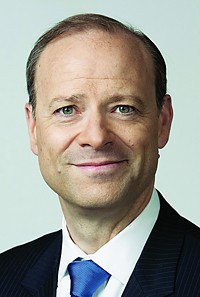Advertisement
Grab your lab coat. Let's get started
Welcome!
Welcome!
Create an account below to get 6 C&EN articles per month, receive newsletters and more - all free.
It seems this is your first time logging in online. Please enter the following information to continue.
As an ACS member you automatically get access to this site. All we need is few more details to create your reading experience.
Not you? Sign in with a different account.
Not you? Sign in with a different account.
ERROR 1
ERROR 1
ERROR 2
ERROR 2
ERROR 2
ERROR 2
ERROR 2
Password and Confirm password must match.
If you have an ACS member number, please enter it here so we can link this account to your membership. (optional)
ERROR 2
ACS values your privacy. By submitting your information, you are gaining access to C&EN and subscribing to our weekly newsletter. We use the information you provide to make your reading experience better, and we will never sell your data to third party members.
Pharmaceuticals
Clinical Managers Ponder Effect of Public Pressure
by RICK MULLIN, C&EN NORTHEAST NEWS BUREAU
February 28, 2005
| A version of this story appeared in
Volume 83, Issue 9
As the major drug firms accelerate clinical trial revamp programs, all are cognizant of the public and regulatory pressure on these operations since safety concerns over COX-2 inhibitors and other drugs surfaced late last year.
COVER STORY
Clinical Managers Ponder Effect Of Public Pressure
"The industry's credibility is hurt by recent news--you can see it on the stock market," says Beat E. Widler, global head of clinical quality at Roche. "Good results are published with negative impact on the stock market. Five years ago, revenues drove stock price. Now, almost the opposite is true. We need to do a better job communicating to the public that any efficacious drug has side effects. The public's general understanding of how drugs work and how they develop is very poor." Roche is one of a small group of drug companies that have announced plans for websites to publish clinical trial results.
Robert T. Maguire, chief of operations for clinical development at Wyeth Research, says additional work may need to be done on postmarket surveillance in order to improve safety monitoring. "The size of the clinical trials we do are not sufficient to detect the kind of adverse effects we are seeing with some of the drugs in the news," Maguire says. "The question is, 'What size trials will we need to do, given the public's perception right now?' We have to reach an agreement with regulators and the public about how we should go about this."
Ira C. Spector, Wyeth's vice president of clinical trials, says the safety issue "brings to bear countervailing forces on the industry. If it drives us to do larger trials, it will cost more money and take longer. At the same time, the public is clamoring for us to get drugs out faster and less expensively."
The regulatory process is already grueling, Spector says. He notes that Tygacil, an antibiotic recently submitted to the Food & Drug Administration, required the largest submission of information in Wyeth's history.
"Antibiotics traditionally have not been among the longer type of clinical trials," he says.
Earlier this month, FDA announced plans for a new independent Drug Safety Oversight Board to oversee the management of drug safety issues (C&EN, Feb. 21, page 10). It also convened a panel hearing on the safety of COX-2 inhibitors (see page 15). Still, industry sources say they are not overly concerned that heightened safety monitoring will lead to an increase of work in clinical trials or New Drug Application filings.
"Everyone has an interest in maintaining a balance," says Glenn J. Gormley, vice president of clinical development at AstraZeneca. "I know that people are concerned, but I don't think there will be an overreaction."



Join the conversation
Contact the reporter
Submit a Letter to the Editor for publication
Engage with us on Twitter